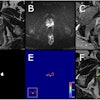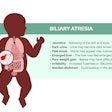The European Coordination Committee of the Radiological, Electromedical, and Healthcare IT Industry (COCIR) said it hopes the final Medical Devices Regulation (MDR) will capitalize on the current regulatory framework and be robust, transparent, and open to innovation.
The upcoming final Trilogue process to negotiate the final regulation will include the Council of Ministers, the European Parliament, and the European Commission. In a statement, COCIR said it supports actions already taken to strengthen the performance of notified bodies. It also supports the council's position to limit the scrutiny procedure to implantable medical devices in Class III. This will avoid unnecessary and unpredictable delays for other medical devices and would undermine patient safety, innovation, and competitiveness, according to COCIR.
COCIR also noted all three European Union (EU) Institutions still do not recognize the major differences between medical devices and pharmaceutical products with regards to clinical data and investigations. As a result, COCIR said it's calling for clinical requirements to be tailored to the unique characteristics of medical devices.
In addition, COCIR said it hopes the EU Institutions will be able to clarify requirements linked to "software as a medical device" and ensure an international convergence based on work by the International Medical Device Regulators Forum (IMDRF). The organization is also highlighting the need for a robust postmarket phase, with a system that has unambiguous and fair obligations for all parties involved in the placing and use of medical devices. COCIR is warning the EU Institutions on keeping pragmatic approaches for reporting serious incidents to competent authorities.
"Such a key regulation will have to be properly deployed and implemented at country level," COCIR Secretary General Nicole Denjoy said in a statement. "A three-year transition period is not long enough for such an important piece of regulation. We want a five-year transition period for medical device manufacturers."
The policy process is now entering a more detailed crucial phase and stakeholder dialogue has never been more important, according to Denjoy.
"We need to ensure the proposed MDR not only strengthens existing legislation, but also stimulates technological innovation, improves market access, and provides optimized patient safety," she said.



















